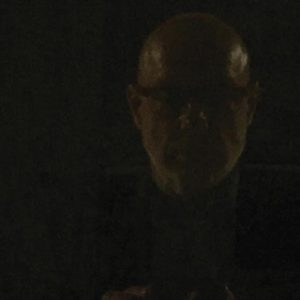Reflection
Brian Eno
Warp Records, 2017


REVIEW BY MATTHEW CLARK
Revisiting an old concept can sometimes be a great idea. This cannot be truer for Brian Eno, who released his latest album, Reflection, on Jan. 1, an album the prolific musician calls a return to ambient music. The term ambient music was coined by Eno to describe his 1975 release Discreet Music, which was an album full of sounds that ebbed and flowed while eschewing the traditional song format he had been experimenting with on previous albums.
Eno got the idea for the album while sick in bed, unable to move; he could barely hear the radio beside him and since he couldn’t move to adjust the volume, he was forced to listen intently to hear it. This listening intently inspired the sparse, distant sounds of Discreet Music, giving the impression of having a window open and hearing the music coming in from far away.
Since then, ambient music has gone on to mean much than Eno originally intended, with the man himself even saying there are artists labelling themselves ambient that he doesn’t think fit the bill.
Eno’s version of ambient music has progressed immensely since its creation, with 1978’s Music For Airports widely considered one of the best ambient records ever made, helping to pioneer the genre. The concept behind the music was similar to classical composer Erik Satie’s “furniture music”, music that would blend into and enhance the ambient atmosphere of whatever room or space it was played in. With Reflection, his 26th album as a solo artist and his fourth for U.K. label Warp Records, Eno brings the concept back to its roots, with breathtaking results.
Reflection not only serves the purposes of Eno’s ambient music well, it is also good music. The tones and sounds used on the album mesh well with any room tone or background noise one may experience while listening to an album that would otherwise ruin their listening experience, but on their own the sounds are just as enjoyable.
If Eno’s goal with Reflection was to create a piece of music that would suit any situation as background music (literal ambience), he has succeeded and then some. The music is multi-faceted, with intent listeners being able to discover something new every time, literally.
In addition to the traditional release that most albums would see, consisting of digital, vinyl and CD versions, Eno has also created a generative app that will play a different version of the piece each time, the closest anyone has come to purely generative music in recent years. This added avenue allows listeners to experience the album in a completely different way, never knowing what to expect each time they open the app.
The way in which Eno has structured Reflection and its release forces listeners to approach the music in a way they may not be used to, while still providing a satisfying musical experience for those who do. Furniture music, ambient music, whatever you wish to call it, Brian Eno’s Reflection is a wholly new sonic experience that will delight listeners old and new.
Rating: 4/5 stars
